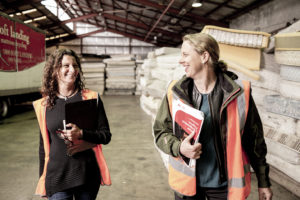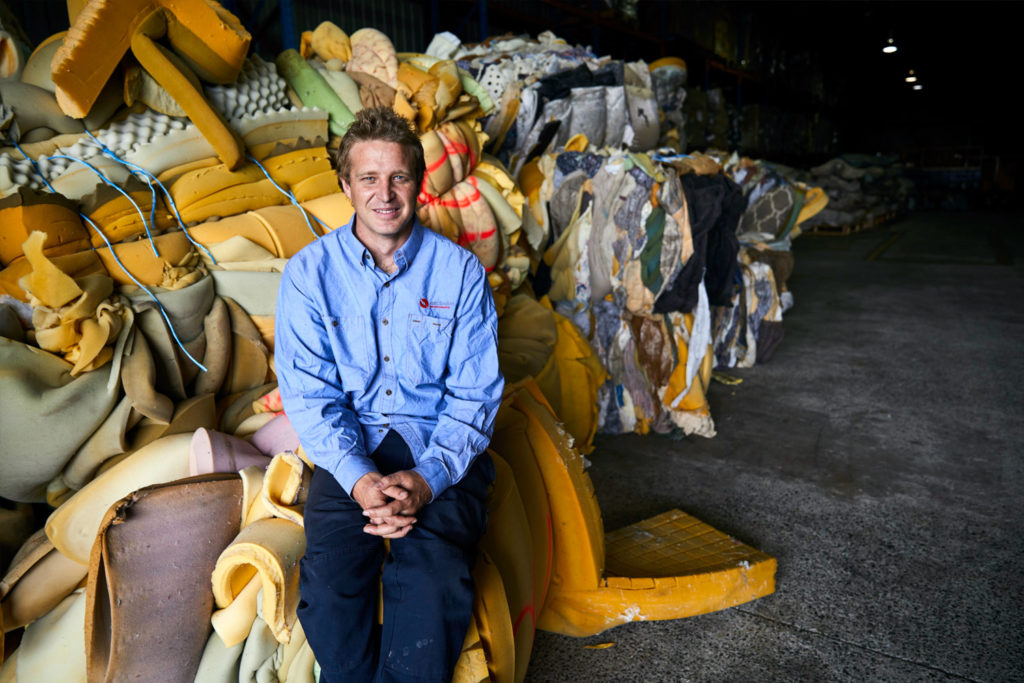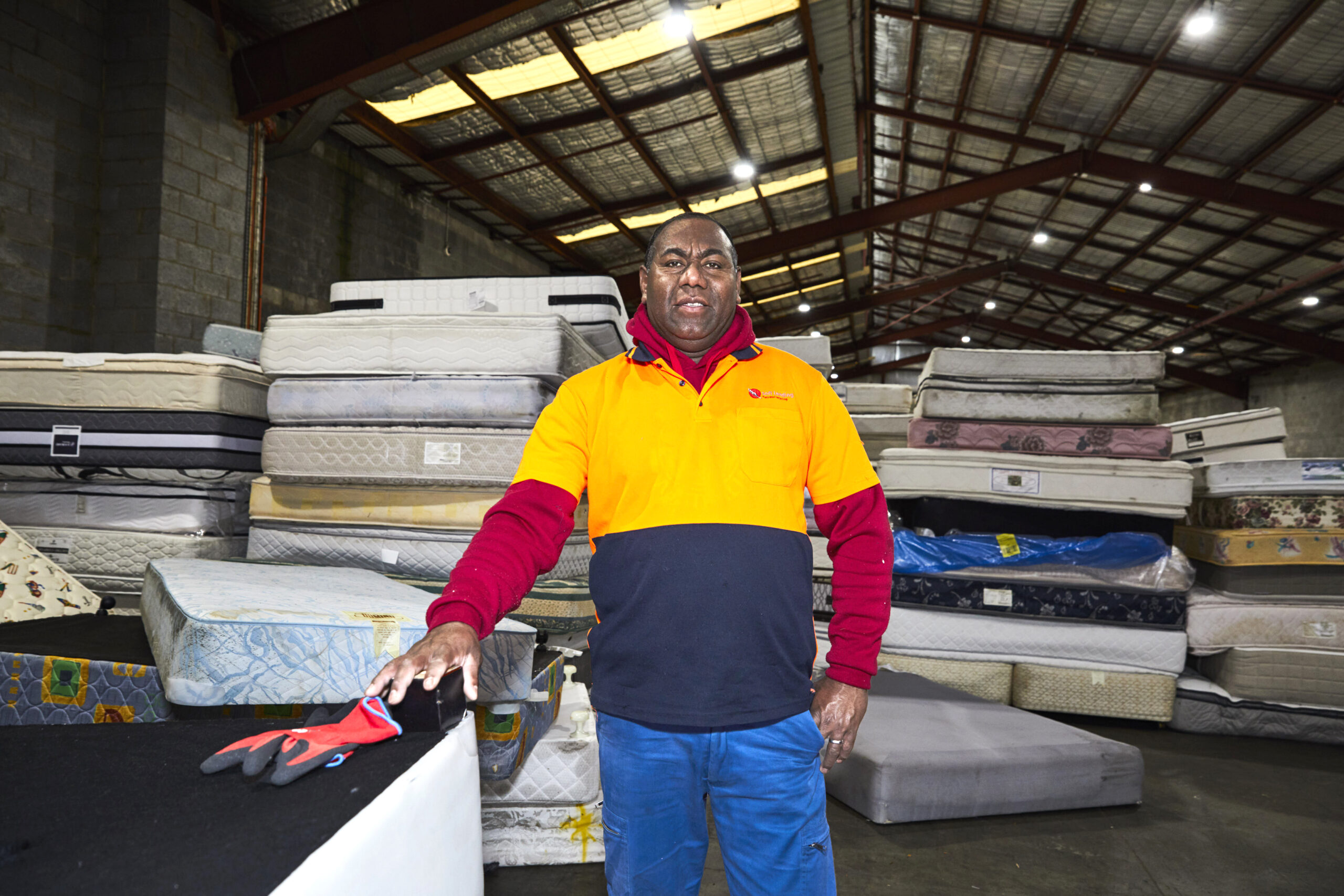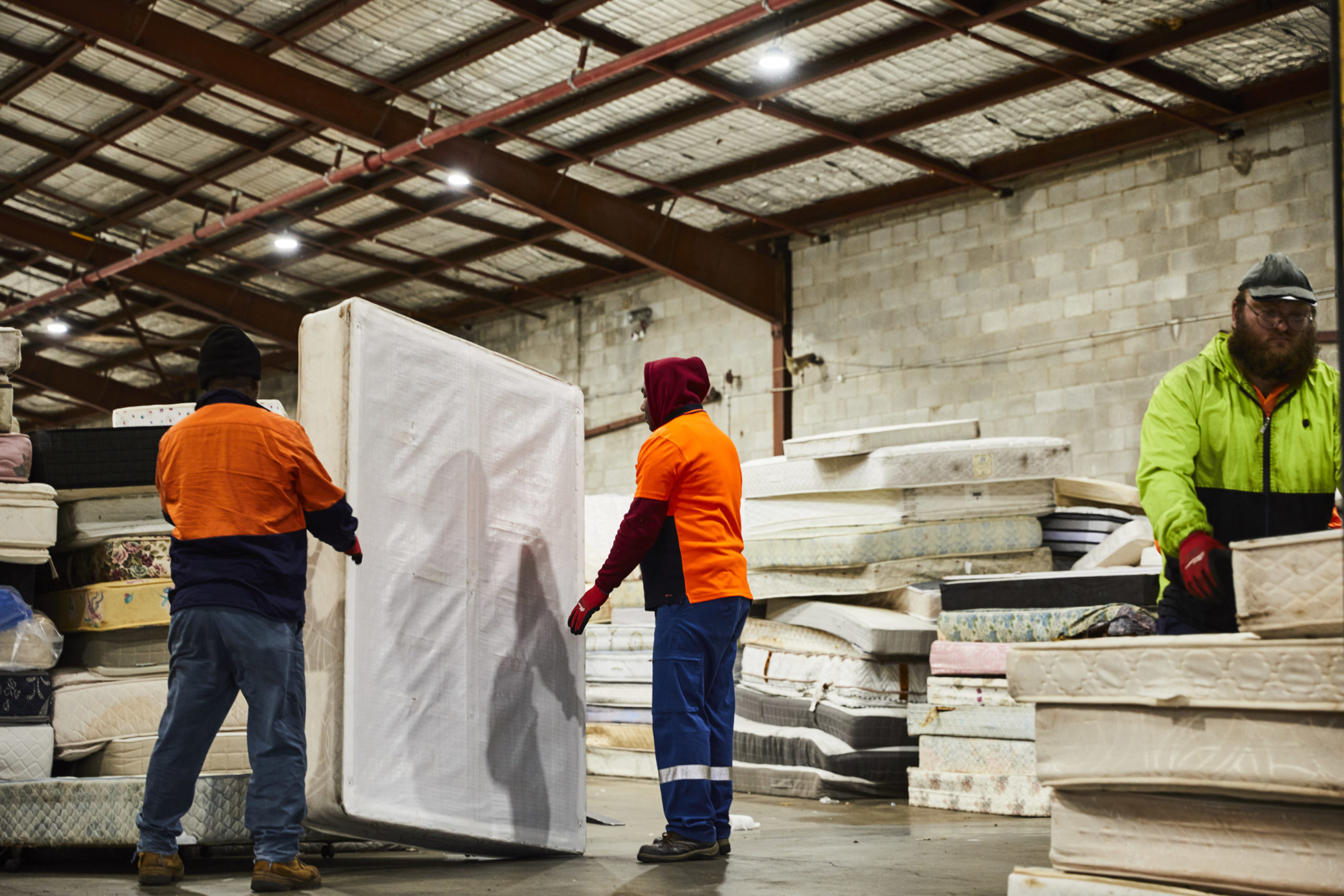MORE NEWS ARTICLES
Has COVID-19 accelerated funding collaboration?
Published in Probono Australia | 9 June 2020
There is a lot at stake for jobs-focused social enterprises in this crisis. The jobs they create offer more than an income. They provide a sense of belonging, a support network, and a range of services to individuals who are often excluded from mainstream employment.
To help these critical businesses survive and thrive so they can continue to provide this much needed support to disadvantaged Australians, funders are uncovering ways to collaborate more efficiently, unlocking greater opportunities for long-term impact.
When the pandemic first hit, Jess Moore, CEO of Community Resources, received a call from Lisa Waldron from Westpac Foundation, a long-time supporter of the national not-for-profit organisation that runs three social enterprises, including Australia’s largest mattress recycler, Soft Landing.
Faced with the uncertainty of the crisis, they discussed ways Community Resources could adapt their businesses to get through this one-in-100-year COVID storm. As a job provider to over 500 individuals, 75 per cent of whom have faced barriers to mainstream employment, Moore’s key priority was job security for her employees.
“We work to create jobs and employment pathways for groups and regions that need them most. Many of our staff are Aboriginal, former refugees and young people – people who face systemic disadvantage and discrimination; barriers to mainstream employment,” Moore says. “Less than 50 per cent of our employees are eligible for JobKeeper.”
Within six weeks, Community Resources had the support of three foundations through one collaboration that would sustain their business throughout 2020, with the opportunity to plan into 2021.
“I’ve never been through a funding process this quickly,” Moore says. “Different funders have different needs. But in this instance, it felt like we could lead the process in terms of our need. We could define the need and the course of action required.”
The swiftness of the collaboration was, according to Moore, the result of trust, strong relationships and a shared vision to create long-term impact. Having worked with two of the funders, Vincent Fairfax Family Foundation (VFFF) and Westpac Foundation, for a number of years, both were willing to move quickly. They understood the business and knew it was a proven model for job creation.
“It was the call with Lisa Waldron that prompted me to think about a collaboration. She drove this. She contacted VFFF and the Paul Ramsay Foundation, and arranged the meeting,” Moore says.
Westpac Foundation shifted its approach to social enterprise funding to a collaborative model 18 months ago, focusing on putting the needs of their community partners first to deliver the greater long-term impact.
Susan Bannigan, CEO of Westpac Foundation, says collaboration is more than coming together to co-fund.
“It is working side by side with funders and the social enterprise to shape and target funding in a way the community partner needs,” she says. “In this instance, these needs rapidly shifted for Community Resources as a result of COVID-19, and we’ve worked together to respond to these.”
For VFFF, this was a time for funders to be stronger together. CEO Jenny Wheatley commented, “We were very happy to share our due diligence and insights with the other funders. Collectively, we stepped forward to back an organisation we all believe in.”

Julie from Soft Landing, with Westpac Foundation senior advisor, Sally McGeoch.
Paul Ramsay Foundation (PRF), the third funder, had been in discussions with Community Resources prior to COVID-19. Knowing the organisation had the backing of Westpac Foundation and VFFF, meant trust was established early on, and they were able to move quickly.
Abhilash Mudaliar, head of impact investing and social enterprise at PRF, says they understand the urgency of the need facing social enterprises whose operations are significantly challenged by COVID-19.
“So, in addition to our own diligence, we took comfort from the insights shared with us by our co-funders and their longer history of collaboration with Community Resources, which enabled us to respond quickly to their funding needs,” he says.
For many social enterprises, the benefits of collaboration go much deeper than funding. Collaboration gives social enterprises the opportunity to access new networks, procurement opportunities and non-financial support, through the extended relationships of its funders. One example is Westpac Foundation’s ongoing relationship with MinterEllison, who provide pro bono legal support for the foundation’s social enterprise partners.
In 2019, the foundation’s social enterprise partners received pro bono support from the organisation valued at $700,000. The year prior it was valued at $1 million.
While Moore is at the beginning of this new collaboration for Soft Landing, this will be the second collaborative partnership underway with Westpac Foundation for Community Resources. In 2019, Green Connect, another social enterprise run by the national not for profit, received collaborative funding from the foundation and the Ian Potter Foundation. One of the biggest benefits in Moore’s opinion is the authenticity and shared approach that exists within the partnership.
“In the more traditional funding reporting, you fill in a form and you send it off. It’s very transactional. Collaborations are different. We are in conversation with our funders, questions are asked and responded to dynamically and that allows you to evolve your plans more effectively,” Moore says.
“I feel like collaboration has been talked about for so long in the sector, and it’s great to see it’s finally happening. These relationships are about so much more than money. It’s the difference between being supported to do something, versus doing something together.
“We are genuine partners in the outcomes we create.”
Westpac Foundation invites any funders or philanthropic organisations open to collaborating to support employment-focused social enterprises to get in touch with Sally McGeoch, senior advisor at Westpac Foundation.

MORE NEWS STORIES





